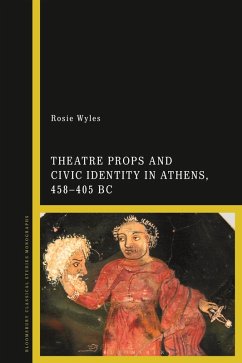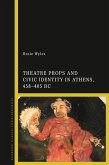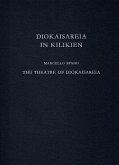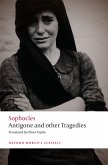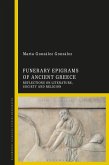This book answers the question 'How did Athenian drama shape ideas about civic identity?' through the medium of three case studies focusing on props. Traditional responses to the question have overlooked the significance of props which were symbolically implicated in Athenian ideology, yet the key objects explored in this study (voting urns and pebbles, swords, and masks) each carried profound connections to Athenian civic identity while also playing important roles as props on the fifth-century stage. Playwrights exploited the powerful dynamic generated from the intersection between the 'social lives' (off-stage existence in society) and 'stage lives' (handling in theatre) of these objects to enhance the dramatic effect of their plays as well as the impact of these performances on society.
The exploration of the 'stage lives' of these objects across comedy, tragedy, and satyr drama reveals much about generic interdependence and distinction. Meanwhile the consideration of iconography representing the objects' lives outside the theatre sheds light on drama's powerful interplay with art. Essential reading for scholars and students of ancient Greek history, culture, and drama, the innovative approach and insightful analysis contained in this volume will also be of interest to researchers in the fields of Theatre Studies, Art History, and Cultural Studies.
The exploration of the 'stage lives' of these objects across comedy, tragedy, and satyr drama reveals much about generic interdependence and distinction. Meanwhile the consideration of iconography representing the objects' lives outside the theatre sheds light on drama's powerful interplay with art. Essential reading for scholars and students of ancient Greek history, culture, and drama, the innovative approach and insightful analysis contained in this volume will also be of interest to researchers in the fields of Theatre Studies, Art History, and Cultural Studies.

